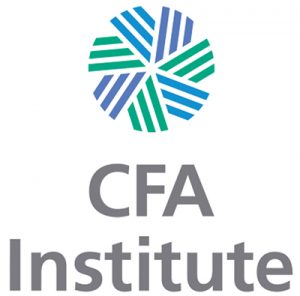Our Credentials
Advising you at the intersection of your money and your life

Bringing financial clarity to life
At Independent Wealth Management, we hold many credentials, licenses, advanced degrees, registrations, memberships and affiliations that demonstrate our commitment to you. We continually build upon our professional education in order to expand our technical expertise, address changes in your life and provide insights on the latest strategies to get you to where you want to be.

Credentials:
CERTIFIED FINANCIAL PLANNER™ (CFP®)
 The CFP®, CERTIFIED FINANCIAL PLANNER™ and CFP® certification marks are financial planning credentials awarded by Certified Financial Planner Board of Standards Inc. (CFP Board) to individuals who meet education, examination, experience and ethics requirements. First, there is an educational requirement, satisfied by a variety of academic degrees and professional certifications. A Certified Financial Planner must complete coursework in investing, taxes, estate planning, retirement planning, and insurance— approved by the CFP® Board at an accredited educational institution and having submitted transcripts from previous financial classes taken for review. The certification process is complete after having passed a rigorous, 10-hour exam (52% pass rate) given over two days. The test measures your ability to apply financial planning concepts and principles to real client scenarios. Additionally, the CFP® certificant must have at least three years of qualifying full-time work experience in the financial planning field. At least 30 hours of continuing education are required during every 2 years.
The CFP®, CERTIFIED FINANCIAL PLANNER™ and CFP® certification marks are financial planning credentials awarded by Certified Financial Planner Board of Standards Inc. (CFP Board) to individuals who meet education, examination, experience and ethics requirements. First, there is an educational requirement, satisfied by a variety of academic degrees and professional certifications. A Certified Financial Planner must complete coursework in investing, taxes, estate planning, retirement planning, and insurance— approved by the CFP® Board at an accredited educational institution and having submitted transcripts from previous financial classes taken for review. The certification process is complete after having passed a rigorous, 10-hour exam (52% pass rate) given over two days. The test measures your ability to apply financial planning concepts and principles to real client scenarios. Additionally, the CFP® certificant must have at least three years of qualifying full-time work experience in the financial planning field. At least 30 hours of continuing education are required during every 2 years.
When it comes to ethics and professional responsibility, Certified Financial Planner™ professionals are held to the highest of standards. CFP Board’s Code of Ethics outlines CFP® professionals’ obligations to uphold principles of integrity, objectivity, competence, fairness, confidentiality, professionalism and diligence. And the Rules of Conduct require CFP® professionals to put your interests ahead of their own at all times and to provide their financial planning services as a “FIDUCIARY” — acting in the best interest of their financial planning clients. CFP® professionals are subject to CFP Board sanctions if they violate these standards.
For more information about the CFP® certification visit http://www.letsmakeaplan.org/. Kurt J. Rossi & Daniel Lindquist are CFP® Professionals.
Chartered Financial Analyst® (CFA®)
 A Chartered Financial Analyst® (CFA®) charter is a designation given by the CFA® Institute to those who have completed the CFA® Program and completed acceptable work experience requirements. Administered by the CFA® Institute, the Chartered Financial Analyst® (CFA®) Program is a graduate-level, self-study curriculum and examination program for investment specialists, covering topics pertaining to economics, financial statement analysis, corporate finance, advanced investment analytics, portfolio management, wealth planning and ethics (among others). Often viewed as the gold standard for the investment industry, the CFA® Program sets the global standard for investment knowledge, standards, and ethics. To become a CFA® charterholder, candidates must first pass each of the three levels, each with its own exam. According to the CFA® Institute, candidates in the program spend over 1,000 hours studying, on average, to obtain the charter and pass all three exams. With fewer than one in five candidates becoming a CFA® charterholder, earning the charter exemplifies a strong understanding of advanced investment analysis and real-world portfolio management skills. In addition to passing all three exams, candidates must meet the requirements for work experience, working over 4,000 hours in a qualified investment-decision making role.
A Chartered Financial Analyst® (CFA®) charter is a designation given by the CFA® Institute to those who have completed the CFA® Program and completed acceptable work experience requirements. Administered by the CFA® Institute, the Chartered Financial Analyst® (CFA®) Program is a graduate-level, self-study curriculum and examination program for investment specialists, covering topics pertaining to economics, financial statement analysis, corporate finance, advanced investment analytics, portfolio management, wealth planning and ethics (among others). Often viewed as the gold standard for the investment industry, the CFA® Program sets the global standard for investment knowledge, standards, and ethics. To become a CFA® charterholder, candidates must first pass each of the three levels, each with its own exam. According to the CFA® Institute, candidates in the program spend over 1,000 hours studying, on average, to obtain the charter and pass all three exams. With fewer than one in five candidates becoming a CFA® charterholder, earning the charter exemplifies a strong understanding of advanced investment analysis and real-world portfolio management skills. In addition to passing all three exams, candidates must meet the requirements for work experience, working over 4,000 hours in a qualified investment-decision making role.
As CFA® Institute members, CFA® charterholders must adhere and attest to the Code of Ethics and Standards of Professional Conduct, as outlined by the CFA® Institute. This includes, but is not limited to, members acting with integrity, competence, diligence and placing the integrity of the investment profession and the interest of clients above their own personal interests. Violations may result in disciplinary sanctions by the CFA® Institute. Sanctions can include revocation of membership, revocation of candidacy in the CFA® Program, and revocation of the right to use the CFA® designation.
For more information about the CFA® designation, please visit https://www.cfainstitute.org/en/programs/cfa Daniel Lindquist is a CFA® charterholder.
Chartered Retirement Planning Counselor – (CRPC®)
 The CRPC program is administered by The College for Financial Planning and was developed with a focus on client-centered problem solving and an emphasis on retirement planning. Applicants gain in-depth knowledge of individuals’ needs both before and after retirement. The study program to become a CRPC covers the entire retirement planning process, including meeting multiple financial objectives, sources of retirement income, personal savings, employer-sponsored retirement plans, income taxes, retirement cash flow, wealth management, estate planning and more. The designation is awarded to individuals after passing an end-of-course examination that tests their ability to synthesize complex concepts and apply theoretical concepts to real-life situations. All designees have agreed to adhere to high Standards of Professional Conduct and are subject to a disciplinary process.
The CRPC program is administered by The College for Financial Planning and was developed with a focus on client-centered problem solving and an emphasis on retirement planning. Applicants gain in-depth knowledge of individuals’ needs both before and after retirement. The study program to become a CRPC covers the entire retirement planning process, including meeting multiple financial objectives, sources of retirement income, personal savings, employer-sponsored retirement plans, income taxes, retirement cash flow, wealth management, estate planning and more. The designation is awarded to individuals after passing an end-of-course examination that tests their ability to synthesize complex concepts and apply theoretical concepts to real-life situations. All designees have agreed to adhere to high Standards of Professional Conduct and are subject to a disciplinary process.
Designees renew their designation every two-years by completing 16 hours of continuing education, reaffirming adherence to the Standards of Professional Conduct and complying with self-disclosure requirements.
Accredited Investment Fiduciary (AIF®)
 AIF® is the first and only designation that illustrates knowledge and competency in the area of fiduciary responsibility, and is a credential awarded by the Center for Fiduciary Standards. AIF® designees have successfully completed a specialized program on investment fiduciary standards of care and subsequently passed a comprehensive examination. Designees must be able to understand and articulate the legal and regulatory environment surrounding the fiduciary, be able to develop and implement an effective investment management process applying the principals of Modern Portfolio Theory, document all due diligence and treat clients with the utmost prudence and care. An AIF designee has attended the required AIF® classroom-based programs, successfully completed the AIF examination and met the education and work experience prerequisites. Continuing education is required each year.
AIF® is the first and only designation that illustrates knowledge and competency in the area of fiduciary responsibility, and is a credential awarded by the Center for Fiduciary Standards. AIF® designees have successfully completed a specialized program on investment fiduciary standards of care and subsequently passed a comprehensive examination. Designees must be able to understand and articulate the legal and regulatory environment surrounding the fiduciary, be able to develop and implement an effective investment management process applying the principals of Modern Portfolio Theory, document all due diligence and treat clients with the utmost prudence and care. An AIF designee has attended the required AIF® classroom-based programs, successfully completed the AIF examination and met the education and work experience prerequisites. Continuing education is required each year.
Certified Divorce Financial Analyst (CDFA®)
 The Certified Divorce Financial Analyst™, (CDFA™) is a professional certification granted by the Institute for Divorce Financial Analysts™ (IDFA™). To attain the right to use the CDFA™(Certified Divorce Financial Analyst™) certification, an individual must satisfactorily fulfill the following requirements:
The Certified Divorce Financial Analyst™, (CDFA™) is a professional certification granted by the Institute for Divorce Financial Analysts™ (IDFA™). To attain the right to use the CDFA™(Certified Divorce Financial Analyst™) certification, an individual must satisfactorily fulfill the following requirements:
Education – Professionals must develop their theoretical understanding and knowledge of the financial aspects of divorce by completing a comprehensive course of study approved by the IDFA™.
Examination – Practitioners must pass a four-part Certification Examination that tests their understanding and knowledge of the financial aspects of divorce. In addition, the practitioner must demonstrate the practical application of this knowledge in the divorce process.
Experience – Individuals must have a minimum of three years’ experience in a financial or legal capacity prior to earning the right to use the CDFA™ certification mark.
Ethics – Practitioners agree to abide by a strict code of professional conduct known as the “Code of Ethics and Professional Responsibility,” which sets forth their ethical responsibilities to the public, clients, employers and other professionals. The IDFA™ may perform a background check during this process, and each candidate for CDFA™ certification must disclose any investigations or legal proceedings relating to his or her professional or business conduct.
Individuals who become certified must complete the following ongoing education requirements in order to maintain the right to continue to use the CDFA™ designation:
Continuing Education – Complete a minimum of fifteen (15) hours of continuing education every two years, that are specifically related to the field of divorce, and Ethics – Practitioners must voluntarily disclose any public, civil, criminal, or disciplinary actions that may have been taken against them during the past two years as part of the renewal process. If a complaint has been brought against a CDFA™ by another professional or member of the general public, the CDFA™ must be examined and cleared by IDFA’s Ethics Committee to maintain their designation.
The Financial Planning Association
The Financial Planning Association (FPA),created in 2000 through the merger of the Institute of Certified Financial Planners (ICFP) and the International Association for Financial Planning (IAFP), is a leadership and advocacy organization for those who provide, support and benefit from financial planning. All members of the FPA must demonstrate a commitment to the highest standards of professional competence, ethical conduct and clear, complete disclosure for financial planning professionals. As such, they must adhere to FPA’s standard of client care. These standards are as follows: Put the client’s best interests first; Act with due care and in utmost good faith; Do not mislead clients; Provide full and fair disclosure of all material facts; Disclose and fairly manage all material conflicts of interest. Additionally, all FPA members are asked to commit to a Code of Ethics that reflects their pledge to help clients achieve their life goals. Under the Code, an FPA member must offer and provide professional service with integrity, objectivity, competence, fairness, confidentiality, professionalism and diligence. Members that do not adhere to this code can be subject to a review by FPA’s Ethics Committee.



